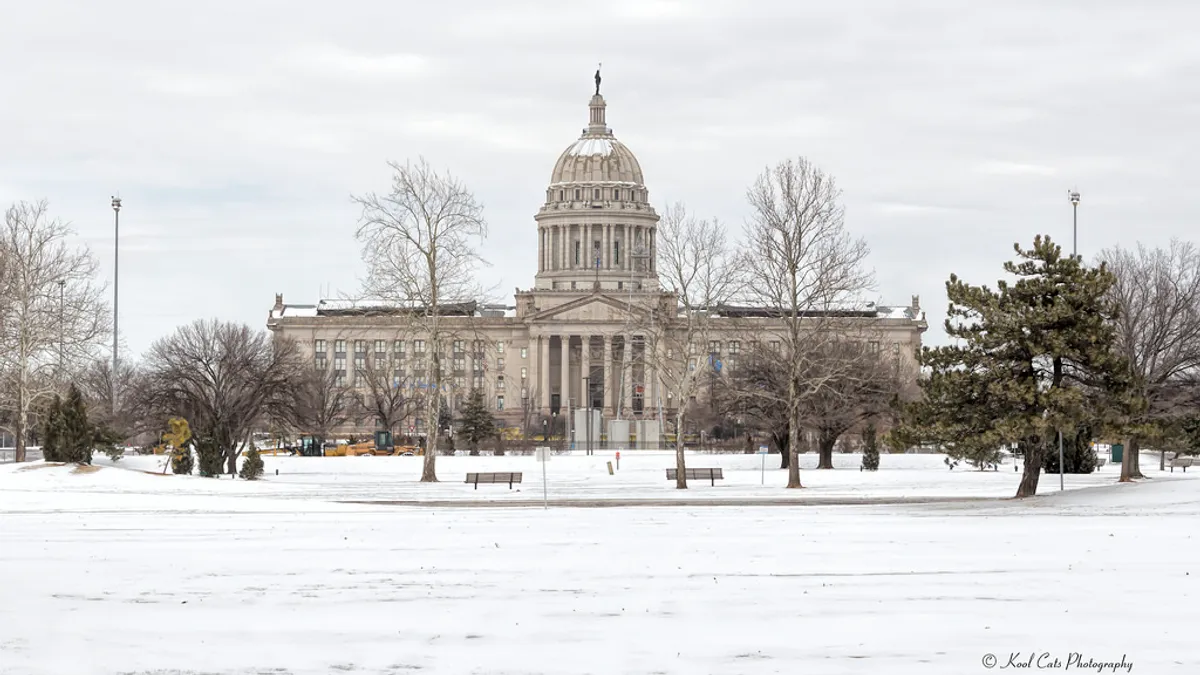Dive Brief:
- Oklahoma Gas & Electric Co. (OG&E) has filed a proposal with regulators to create a new rate structures for customers with distributed generation, according to the Oklahoman. Public Service Oklahoma, the state's other major regulated utility, has yet to make its filing, which it is required to do by year's end.
- The proposed new rates would add a demand charge to the bills of distributed generation owners, which already include an energy charge, a fuel charge, and a customer charge. The proposed demand charge was put at $2.68 per kilowatt each month.
- Although OG&E reportedly only has 200 customers with rooftop solar in its service territory of 800,000, the utility wants to be prepared for rapid growth in the rooftop solar market. OG&E indicated the new rate structure would solve any cross-subsidization issues associated with distributed generation.
Dive Insight:
Oklahoma may now be a desert for rooftop solar, but OG&E wants to be ready for the day when that changes, as it has in many Western states.
In Arizona, the issue of cost shifts caused by rooftop solar has dominated the dialogue since the first fight over fixed charges in 2013. The back-and-forth political warfare that began then in Arizona has since spread to many other states, often pitting the interests of national solar installers against those of the incumbent utilities.
Oklahoma became the latest state to take up the issue when legislation passed last year to require regulated utilities to implement new tariffs for distributed generation by the end of 2015. The new tariff would not apply to existing rooftop solar customers. The Oklahoman reports only 15 customers would currently by affected by the changes.
Despite the small existing number of rooftop solar customers, The Alliance for Solar Choice, a solar advocacy group backed by major residential installers, says it will fight OG&E's proposal on the grounds that it cannot prove cross-subsidization is happening.
Similar proposals by utilities to implement fixed and/or demand charges have cropped up in other states recently, such as California and Arizona. The dialogues over those proposals are widely expected to be highly contentious.














